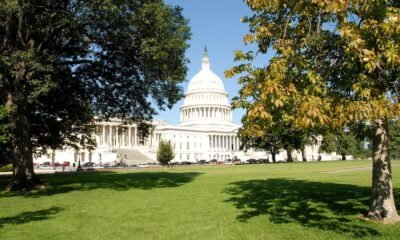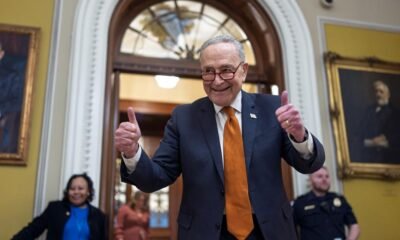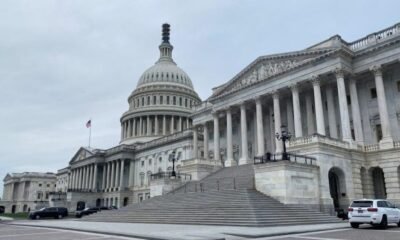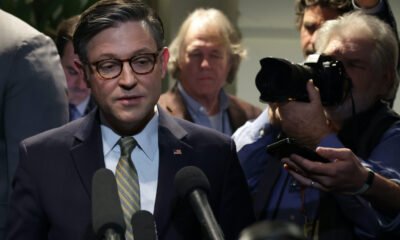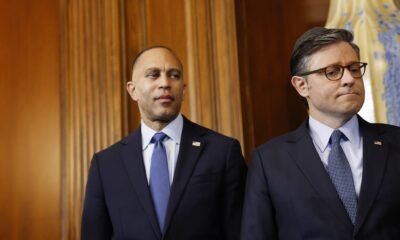Business
Government Shutdown Looms as House Fumbles Budget Fix
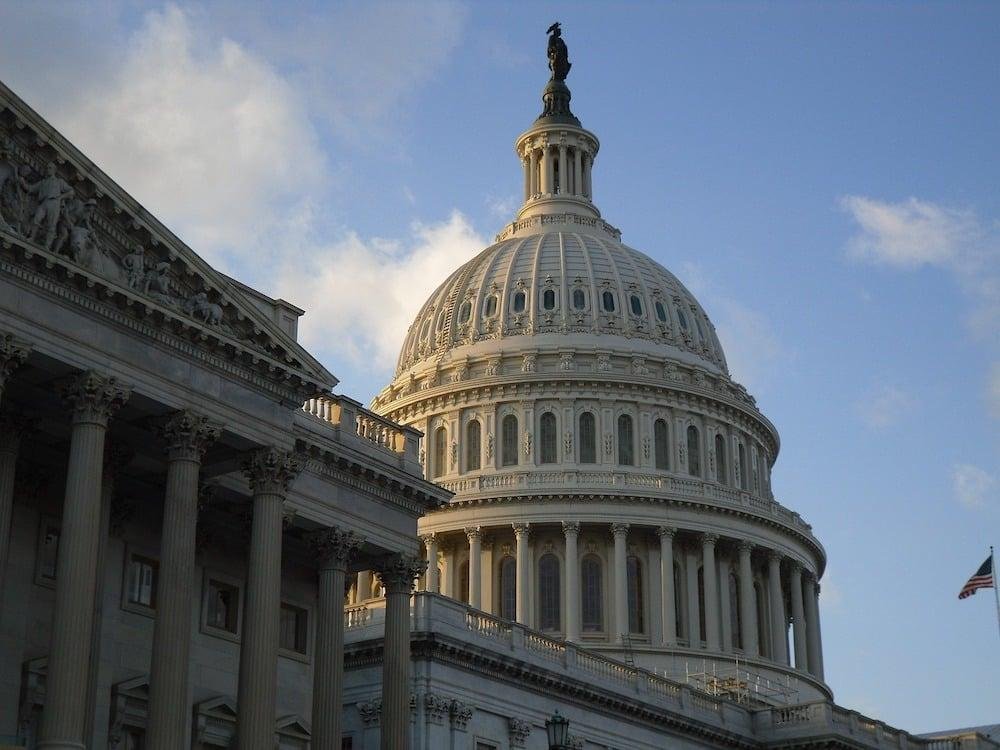
A potential government shutdown looms with increasing urgency after the House failed to pass a Republican-backed budget stopgap bill on Thursday. The proposed legislation, aimed at extending federal funding through March, was deemed a political nonstarter by both Democrats and several Republicans.
The last 24 hours in Washington were tumultuous, marked by intense pressure from President-elect Donald Trump and tech mogul Elon Musk, both of whom urged Republicans to reject a bipartisan spending compromise. Their influence turned what could have been a cooperative effort into a divisive spectacle.
The plan aimed to avert a shutdown, which is set to commence Friday evening, but it unraveled due to controversy surrounding its provisions, including disaster relief and agricultural aid. Musk’s public opposition to the bill spread misinformation, leading him to falsely claim it allocated significant taxpayer funds for the renovation of Washington, D.C.’s Robert F. Kennedy Stadium. In reality, the provision simply facilitated a relocation agreement for the Washington Commanders football team, with no federal investment involved.
Despite Musk’s claims of victory after the bill’s collapse, the reality is far more complex. He framed his stance as a reflection of populist sentiment among his social media followers, asserting a victory for the people despite only a fraction of Americans being active on his platform.
Republicans quickly pivoted to a new proposal, drastically scaling back the previous plan while retaining about $100 billion for disaster aid and $10 billion for farmers. This revised resolution recommended a temporary increase to the federal debt limit, a move that Trump specifically sought.
However, this new bill fell short in the House, failing to garner the necessary two-thirds majority. Over two dozen Republican representatives defied their party, joining Democrats in opposing the measure. Ultimately, only 172 Republicans and two Democrats supported it.
Democrats expressed outrage over the GOP’s decision to withdraw from the bipartisan arrangement, accusing their counterparts of capitulating to Musk’s undue influence. Connecticut Representative Rosa DeLauro criticized Republicans for allowing a “billionaire” to dictate congressional actions, calling it a troubling precedent.
Similarly, Massachusetts Representative Richard Neal lamented the impact of social media on congressional decision-making, suggesting it could set a dangerous standard for the future. House Minority Leader Hakeem Jeffries condemned the situation, asserting that the newly proposed resolution would hold the government hostage to please wealthy interests.
Even within Republican ranks, dissent brewed. Texas Representative Chip Roy denounced the ongoing pattern of excessive government spending and criticized his party for not adhering to fiscal discipline. He lamented that even if the new bill appeared improved on paper, it nonetheless contributed significantly to the national debt.
Supporters of the measure argued that it contained provisions previously endorsed by Democrats, suggesting that any government shutdown would be their fault for not cooperating. Yet Democrats countered that Republicans were failing to unify around their own proposal.
“Put on your big boy pants and pass your own bill,” Florida Representative Jared Moskowitz remarked, highlighting the GOP’s internal discord. The White House echoed these sentiments, stating that Senate Republicans were prioritizing the interests of affluent donors over the needs of ordinary citizens.
President Biden remains in favor of bipartisan efforts to maintain government operations and address disaster recovery, criticizing the Republican proposal as a last-minute favor for billionaires. With the failure of Thursday’s vote, the path forward for Congress remains uncertain as the countdown to a potential shutdown continues.
